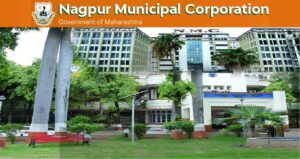Nagpur Electric Bus Project Hits Snag: Negotiations Stall, Deployment of 250 Buses Impacted
Nagpur’s electric bus project has been delayed despite receiving ₹137 crore in 2022 due to procurement and infrastructure challenges. The city needs these buses urgently, as 237 diesel buses will be decommissioned, reducing the fleet from 500 to 361. Although 64 new e-buses have arrived, inadequate charging infrastructure has stalled their deployment. Procurement issues arose when the sole bidder, Evey Trans, quoted ₹85 per km, higher than NMC’s target of under ₹70. If negotiations fail, NMC will reissue the tender. Additionally, 150 more e-buses are expected next year under the Prime Minister’s E-bus scheme.

Nagpur Electric Bus Project Hits Snag: Negotiations Stall, Deployment of 250 Buses Impacted
The Nagpur Municipal Corporation (NMC) received ₹137 crore from the state government in 2022 to procure 250 electric buses, but the project has been delayed. Expanding the Aapli Bus fleet is essential, as 237 diesel buses are set to be phased out by the end of the year, reducing the total fleet from nearly 500 to 361. Although 64 new electric buses have been acquired, their deployment has been stalled due to a lack of adequate charging infrastructure.
Nagpur’s Electric Bus Project Faces Delays and Challenges
The Nagpur Municipal Corporation (NMC) has encountered multiple obstacles in its ambitious plan to expand the city’s electric bus fleet. In 2022, the Maharashtra state government allocated ₹137 crore to NMC to procure 250 electric buses, aiming to enhance public transportation while reducing carbon emissions. However, the project has faced significant delays, raising concerns about the city’s ability to meet its public transport demands.
One of the key reasons for the urgency of this expansion is the impending decommissioning of 237 diesel buses by the end of the year. This will bring down the total fleet size from nearly 500 to just 361 buses, potentially affecting daily commuters who rely on the Aapli Bus service. The transition to electric buses is intended to counter this reduction while promoting sustainability. However, despite the introduction of 64 new electric buses, their deployment has been hindered due to inadequate charging infrastructure, particularly at the Wathoda depot.
Procurement and Pricing Issues
The procurement of new electric buses has also been slowed by complications in the bidding process. Initially, two companies participated in the tender, but one was disqualified, leaving Evey Trans Private Limited as the sole bidder. The company quoted a price of ₹85 per kilometer, significantly higher than the amount NMC aimed for. Officials sought to negotiate the rate to below ₹70 per kilometer, arguing that operating costs for electric buses should be lower than those of diesel buses. However, Evey Trans refused to lower its bid, leading NMC to consider reopening the tender process for a third time.
Transport officials pointed out that NMC currently pays ₹72 per kilometer for standard diesel buses, while electric buses in operation cost between ₹44 and ₹66 per kilometer. Given this, NMC believes the per-kilometer cost for the new fleet should not exceed that of diesel buses. Despite efforts to negotiate with Evey Trans, the lack of agreement has delayed procurement. Transport manager Ganesh Rathod has confirmed that if negotiations fail, a fresh round of bidding will be announced.
Bus Specifications and Future Plans
The proposed electric buses are expected to be 12 meters long and accommodate 40 passengers. This makes them comparable to standard buses in terms of seating capacity, whereas the existing fleet of 166 e-buses in Nagpur has a smaller capacity of 30 seats. The larger size of the new e-buses is expected to improve passenger convenience and reduce congestion during peak hours.
Looking ahead, NMC anticipates the arrival of an additional 150 electric buses next year under the Prime Minister’s E-bus scheme. If successful, this initiative could significantly bolster the city’s public transport network, reducing dependency on diesel buses while promoting environmentally friendly travel options. However, for this plan to be effective, the city must first address the current infrastructure shortcomings that prevent the full utilization of its existing electric buses.
Charging Infrastructure Challenges
A major obstacle in the deployment of electric buses has been the lack of proper charging facilities. At present, 64 electric buses remain unused due to inadequate charging infrastructure at the Wathoda depot. Without an expansion of charging stations, newly procured buses may also face deployment issues, further delaying the project’s impact.
For Nagpur to successfully transition to an electric bus fleet, the authorities must ensure that charging infrastructure keeps pace with vehicle procurement. Expanding the number of charging stations and upgrading existing facilities will be crucial in making the project viable. Until then, the delay in deploying electric buses continues to raise concerns about the reliability and efficiency of Nagpur’s public transportation system.
Check out TimesWordle.com for all the latest news
You must be logged in to post a comment.